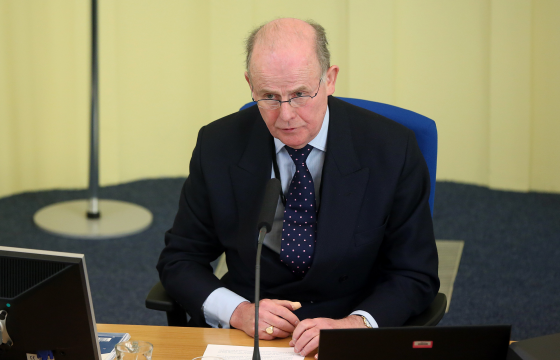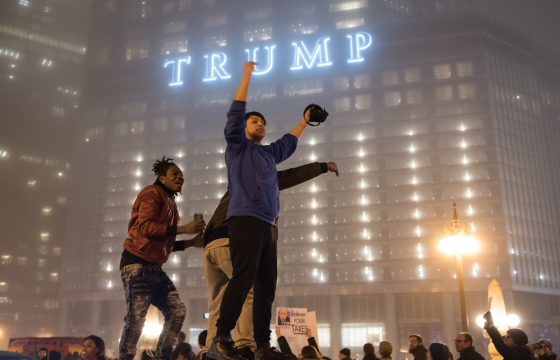Pope Francis has said that he prefers to "wait and see" on Donald Trump's presidency and that it would be "reckless" for anyone to pass judgment before he has had a chance to do anything.
Speaking to two reporters from the Spanish daily newspaper El Pais at the same time as the inauguration ceremony for the new US president was taking place in Washington DC, Francis said that "being afraid or rejoicing" because of something that might happen is "unwise".
"I think that we must wait and see," El Pais quoted Francis as saying. "I don't like to get ahead of myself, nor to judge people prematurely. We will see how he acts, what he does, and then I will form an opinion. But being afraid or rejoicing beforehand because of something that might happen is, in my view, quite unwise.
"It would be like prophets predicting calamities or windfalls that will not come to pass. We will see what he does and will judge accordingly. Always work with the specific. Christianity is either specific or it is not Christianity."
Francis continued: "It is interesting that the first heresy in the Church took place just after the death of Jesus Christ: the gnostic heresy, condemned by the apostle John. Which was what I call a spray-paint religiousness, a non-specific religiousness...nothing concrete.
"No, no way. We need specifics. And from the specific we can draw consequences. We are losing our sense of the concrete. The other day, a thinker was telling me that this world is so upside down that it needs a fixed point. And those fixed points stem from concrete actions. What did you do, what did you decide, what moves did you make? That is why I prefer to wait and see."
El Pais asked another question about Trump and populists in the United States and Europe who, the interviewer said, "capitalise on fear in the face of an uncertain future in order to form a message full of xenophobia and hatred toward the foreigner".
"Crises provoke fear, alarm," the pope said. "In my opinion, the most obvious example of European populism is Germany in 1933. After (Paul von) Hindenburg, after the crisis of 1930, Germany is broken. It needs to get up, to find its identity, a leader: someone capable of restoring its character, and there is a young man named Adolf Hitler who says: 'I can, I can.'"
"Hitler didn't steal the power, his people voted for him, and then he destroyed his people," Pope Francis said.
In times of crisis, he said, large segments of the population think, "Let's look for a saviour who gives us back our identity and let's defend ourselves with walls, barbed-wire, whatever, from other peoples who may rob us of our identity. And that is a very serious thing."
Obviously, Pope Francis said, nations have a right and duty to control their borders, especially under the threat of terrorism, but "no country has the right to deprive its citizens of the possibility of talking with their neighbours".
(Additional reporting by Catholic News Service. Original interview appeared in El Pais newspaper.)
PICTURE - Anti-Trump protesters climb on to parked cars in front of Trump Tower in Chicago during a mass demonstration on Inauguration Day on Friday.




 Loading ...
Loading ...